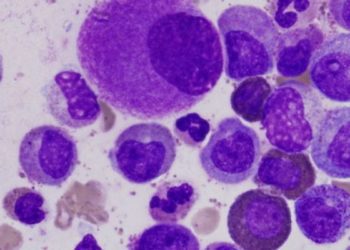Influenza vaccine well tolerated in children with egg allergy
1. Administration of the live attenuated influenza vaccine was well tolerated by children with egg allergies, and did not cause any systemic allergic reactions.
2. Additionally, among children with asthma or recurrent wheezing, the live attenuated influenza vaccine was well tolerated without worsening of symptoms.
Evidence Rating Level: 2 (Good)
Study Rundown: Based on its effectiveness and safety profile, the intranasally administered live attenuated influenza vaccine (LAIV) has been widely recommended for children between the ages of 2 and 17. However, just like other injectable forms of the influenza vaccine, the LAIV is manufactured in hen’s eggs and many batches contain detectable levels of egg proteins. Though administration of the LAIV and other influenza vaccines has been historically contraindicated in children with allergies to egg products, only scant safety data exists to support this practice. This study therefore sought to quantify the risk of allergic reactions to the LAIV in a cohort of children with egg allergies. The study included 779 children with confirmed egg allergies, who after parental consent, were administered a dose of the LAIV under close supervision. In the immediate setting, there were no cases of anaphylaxis or other systemic allergic reactions, and only 9 reports of mild allergic symptoms (rhinitis, urticarial, etc.). After 72 hours of follow-up, there were a total of 221 (28.3%) reportable events; including 141 mild upper respiratory tract symptoms, and 62 lower respiratory tract symptoms (including 29 patients reporting wheezing).
While there were localized events including rash and wheezing did occur, no systemic allergic reactions were reported. There is a potential argument to be made regarding sensitization after a first dose, but almost one-third of the participants had received the vaccine in the previous year. Further, the study was unable to find any significant risk factors among patients for developing any reaction to the LAIV. Overall, this study serves to provide further evidence disputing the wide held belief that there is potential for anaphylaxis after taking the LAIV in patients with egg allergy, although the link between reported local reactions and vaccine administration should be explored.
Click to read the study in the BMJ
Relevant Reading: Assessing optimal target populations for influenza vaccination programs: an evidence synthesis and modelling study
In-Depth [prospective cohort]: This multi-center, open-label, phase IV intervention study recruited 779 children with confirmed egg allergies in the United Kingdom between the ages of 2 and 18. Among the cohort, 270 (34.7%) had experienced anaphylaxis to egg products, although none had required intubation or ICU admission. The majority of participants (85.6%) received at least 1 dose of a batch of LAIV with detectable levels of ovalbumin (>0.3 ng/mL). They were all monitored closely for a minimum of 30 minutes after inhalation of the vaccine, and were followed-up either in person or via telephone after 72 hours. Within 2 hours of LAIV administration, no children had experiences systemic allergic reactions including anaphylaxis (Upper 95% CI: 0.47%). Nine children reported immediate mild allergic symptoms, and those with a prior reaction to aerosolized egg products were at a greater risk for these reactions. After 72 hours of follow-up no serious adverse events were recorded. Sixty-two children (8.1%, 95% CI: 6.3% – 10.3%) however, experienced lower respiratory tract symptoms including 29 who reported wheezing. Though no factors were found to associate with an increased risk of these delayed reactions, there was a non-significant trend to increased risk among younger children (p = 0.07). Among children in the study with a prior diagnosis of asthma, there was no change in their level of control after LAIV administration (p = 0.12).
Image: PD
©2015 2 Minute Medicine, Inc. All rights reserved. No works may be reproduced without expressed written consent from 2 Minute Medicine, Inc. Inquire about licensing here. No article should be construed as medical advice and is not intended as such by the authors or by 2 Minute Medicine, Inc.









